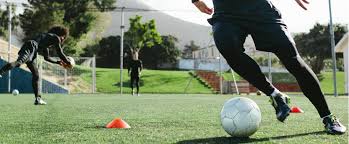When fans think of elite sports performance, they often picture raw talent, blazing speed, or tactical brilliance. What’s often overlooked is the foundation behind all of it: strength training. While it may not grab headlines like highlight-reel goals or clutch shots, strength training plays a critical and often unseen role in shaping the performance of top athletes.
From football fields to tennis courts, and from basketball arenas to Olympic tracks, strength training is the silent engine driving athletic success.
Why Strength Training Is More Than Just Muscle
Strength training isn’t about building bulk for aesthetics. For athletes, it’s about:
- Power production – the ability to explode off the line, jump higher, or throw farther.
- Injury prevention – stronger muscles and connective tissues absorb force and stabilize joints.
- Neuromuscular efficiency – improving the connection between the brain and muscles for faster, more coordinated movement.
- Endurance enhancement – muscular strength delays fatigue, even in endurance sports.
In essence, strength training lays the groundwork for speed, agility, endurance, and resilience.
Real-World Examples of Strength in Sport
- Football (Soccer): Top players like Cristiano Ronaldo and Kylian Mbappé incorporate strength sessions into their weekly routine not to bulk up, but to boost sprinting speed, balance under pressure, and injury resistance.
- Basketball: LeBron James spends millions annually on strength and recovery. His longevity and explosive play well into his late 30s are a testament to how essential strength training is in a contact-heavy, high-impact sport.
- Tennis: Serena Williams and Novak Djokovic rely on strength training to generate powerful strokes, maintain court speed, and reduce the stress of thousands of rapid directional changes.
- Track & Field: Sprinters like Usain Bolt train with heavy lifts (like squats and power cleans) to develop maximum force in minimal time a key for elite acceleration.
The Science Behind It
Strength training leads to:
- Improved Rate of Force Development (RFD) – the faster you can produce force, the quicker and more explosively you move.
- Enhanced proprioception – body awareness improves balance, agility, and reaction time.
- Hormonal benefits – proper strength work boosts testosterone and growth hormone, aiding performance and recovery.
Research consistently shows that athletes who incorporate periodized strength training (structured variation in intensity and volume) see improvements in both primary sport skills and overall performance.
Common Myths – Debunked
- “Strength training makes you slow.”
In reality, well-designed strength training makes you faster by increasing power output. - “It’s only for power sports.”
Even endurance athletes benefit. Strengthening key muscle groups improves running economy and helps prevent overuse injuries. - “You don’t need it if you practice enough.”
Sport-specific training isn’t enough. Strength work fills in the physical gaps that skills practice alone can’t.
Designing Strength for Performance
Top athletes use sport-specific programs tailored to their needs. These may include:
- Olympic lifts (cleans, snatches) for power
- Compound movements (squats, deadlifts, presses) for overall strength
- Unilateral work (lunges, single-leg squats) for balance and injury prevention
- Core strengthening for stability and control
- Plyometrics to bridge the gap between strength and speed
Importantly, strength work is often periodized to peak at key points in the season and avoid overtraining.
Takeaway: Strength Training Is the Hidden Superpower
You might not see it on the highlight reel, but behind every elite athletic performance is a foundation of structured, intentional strength training. It’s not about lifting the heaviest weights it’s about unlocking the full potential of the body in motion.
Whether you’re a pro athlete or a dedicated amateur, building strength the right way will make you faster, more powerful, more durable and ultimately, more successful in your sport.

